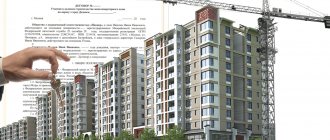What falls under the concept of an extension and whether these structures need to be documented
According to the current Town Planning Code of the Russian Federation, the addition of any structure to a house that is not included in the original architectural plans and entails a change in its original key characteristics (area, volume) is a reconstruction. And the reconstruction of a house is under the jurisdiction of state supervisory authorities and is regulated not only by the Town Planning Code, but also by other regulations. Extensions are divided into capital and non-capital.
A major extension is a residential or technical premises, with one or more walls common to the house, of any area, for the construction of which additional land is used. The number of floors of the extension may or may not coincide with the number of storeys of the house, usually to a lesser extent.
A non-permanent extension is a secondary, non-residential structure that does not require a permanent foundation and changes the parameters of the house slightly. This could be a porch, balcony, open terrace or veranda, canopy and the like.
Both capital and non-capital extensions must be documented, but the process algorithm is significantly different.
Option 1: pre-trial agreement
The algorithm for legitimizing an extension to a house is almost no different from the traditional notification:
- Submit an application to the municipality. This could be the administration of a district, city, or village. Typically, such issues are dealt with either by a city planning committee or by a department related to architecture; in large cities there are separate special control units.
- Wait for an answer.
- Order a technical passport for the new building.
- Come to the municipality again.
- Pass the examination.
Difficulties may arise at the response stage: if the administration refuses, it will be much more difficult to legitimize the construction.
How to arrange a non-permanent extension
There are no fundamental changes in the design of the house due to non-permanent extensions, they do not create a danger for the residents themselves, do not violate the standard distances and cannot in any way infringe on the rights of neighbors, therefore permission for their construction is not required. Actually, now it is not required at all, but since March 1 of this year, a notification has been introduced, which is submitted to local governments before the start of construction. But local authorities can both approve the construction and issue a refusal and, in fact, the meaning has not changed. If we are talking about non-permanent extensions, there is no need to submit a notification to the municipalities, but upon completion of construction they must be processed through the BTI.
- Provide title documents for the plot and house.
- Write an application for changes to the technical documentation.
Ideally, a commission will visit the site to verify the parameters of the extension; based on the results of the inspection, they will issue a certificate of completion of the reconstruction. You can register a non-permanent extension either immediately after construction or after a while; there are no fines or sanctions for delays. It is theoretically possible to leave it without registration at all, but it is impractical - it is not known how the legislation will change, it is better to have the entire package of documents on hand.
Do I need to register an extension to a house on my own land?
An extension to a residential building must be documented because:
- the total area of the object changes. New parameters must be registered in case the house is subsequently sold, inherited, etc. It is important to register a new area in the case of shared ownership of a house, because the size of the shares will change;
- During construction, all construction standards must be observed, including setbacks from neighboring areas. In case of violation, the extension may be assigned the status of an unbuilt building. During registration, it is assessed whether the interests of neighbors are not affected by marking the new boundaries of the property on the site plan. To do this, the cadastral engineer draws up a new cadastral passport for the house.
As a general rule, before constructing an extension, it is necessary to notify the authorized body and obtain permission for its construction. But until March 1, 2026, registration of individual housing construction objects can be carried out without such a document, under the dacha amnesty.
Legalization of a capital extension before the start of construction
You can go through the exact wording for a long time, but any major extension, even if it is a non-residential premises, but with a common wall with the house, is a reconstruction and must be approved before the start of construction, and not after.
Appolo10FORUMHOUSE Member
...I recommend that you first consider the legal side of the issue. To carry out a “reconstruction” (extension), you need to make a project and obtain a “reconstruction permit” from the local authorities. If you don’t do this, you will end up with “squatter construction”; the state is fighting this phenomenon, and every year it’s getting stronger…
And although the permit for individual housing construction was first abolished and then replaced with notification/approval, changing the places of the terms does not change the amount - notification of the planned reconstruction is a mandatory, not a recommended stage.
Civil Code of the Russian Federation Article 51.1. Notification of the planned construction or reconstruction of an individual construction project or residential building (valid from 08/04/2018, Federal Law No. 340)
"1. For the purpose of construction or reconstruction of an individual housing construction project or a garden house, the developer submits on paper through a personal appeal to the federal executive body authorized to issue construction permits, the executive body of the constituent entity of the Russian Federation or the local government body, including through a multifunctional center, or sends to the specified authorities by mail with acknowledgment of receipt or a single portal of state and municipal services a notice of the planned construction or reconstruction of an individual housing construction project or a garden house (hereinafter also referred to as the notice of planned construction) ... ".
As practice shows, today it is also possible to submit a notification remotely through the personal account of the Public Services portal. The form is filled out electronically and submitted in the appropriate section.
The notification form is standard and approved by executive authorities; when filling out, you will need to enter the following information.
- Full name, place of residence of the applicant, as well as details of the passport (or other identification document).
- Cadastral number of the plot (if any), its address or description of location.
- On what basis did the right to the plot arise?
- If there is shared ownership, information about other owners is also listed.
- About the type of permitted use of the site (UR).
- On the type of permitted use of a capital construction project (CCA), residential or garden house.
- The purpose of submitting the notification (there is only one form, but it indicates not construction, but reconstruction).
- About the parameters of the planned extension, including setbacks from the boundaries of the site.
- A graphic representation of the location of the planned extension on the site (indicating the dimensions and distances to the boundaries).
- That in the future the extension will not be made into a separate capital construction facility (that is, the house will not be divided into independent parts).
- Postal address and email (if available) for feedback.
- The method in which the applicant wants to receive a response.
Documents for the land are attached to the notification if it has not yet been registered in the Unified State Register of Real Estate. If the house is located within the boundaries of a historical settlement, you will need to attach a text description of the facades and a graphic image. Within seven working days (twenty for historical settlements) from the receipt of the notification, local authorities must conduct an inspection and either approve the reconstruction or refuse approval. Upon receipt of consent, construction can begin, at the end of which a commission from local authorities will have to accept the object and issue a conclusion on compliance. In reality, it is usually enough to notify local authorities about the completion of reconstruction, provide a technical plan and state registration fees. And the municipalities themselves will submit an application for registration to Rosreestr within the same seven days.
In the second case, you will have to obtain consent through the court. If you do without notification and build at your own peril and risk, you can end up with a self-construction with all that it entails, and this is a minimum of bringing it into compliance, and a maximum of demolition.
IMHO FORUMHOUSE member
Any “redistribution that leads to an increase in area” is reconstruction. In the end, you will have to “legalize” not the extension, but the entire house again in changed coordinates. But without completing the “notify and agree” quest, you run the risk of squatting.
If the extension does not in any way affect the rights of neighbors or the neighbors are among those with whom it is possible to come to an agreement, then it is quite possible to live with such unauthorized construction for decades. But it will not be possible to sell, donate or bequeath an illegally reconstructed house. Yes, the powers that be are planning to extend the dacha amnesty, but it will be about houses that have already been built or reconstructed. And not about extensions being built in real time, bypassing current legislation.
Is it important for honor to legitimize the project?
There is a widespread and erroneous opinion that if you are the owner of a plot, then it is your personal business what exactly you will add to your private home. Legal requirements are not a whim of the legislator, but an urgent necessity. And there are several points that limit the independence of the owner of the house. Including:
- Town planning legislation regulates the placement of buildings on the site, because you live next to your neighbors, and they also have their own rights.
- With an extension to the house, its design, area, and finally, the size of the shares changes if the house has several owners.
- In addition to the legal aspects of protecting the interests and rights of other persons from the law, there are also security issues, which primarily concern the residents themselves. After all, if you want to make an extension, you interfere with the design of the house, its communications, and make other changes that are not in the project.
- Finally, without obtaining permission for the extension, you will not be able to subsequently sell, exchange the house or conduct other transactions with it. In addition, the illegal construction may sooner or later be required to be legalized or demolished, obliging you to also pay a fine.
How to legalize an existing capital extension
At the moment, it is possible to legalize self-construction only through the court, provided that the construction was carried out in accordance with the VRI, building standards and within permissible limits. To do this, the owner must file a claim in court, and the municipality will be the defendant. If the decision is in favor of the plaintiff, all that remains is to pay the state fee and register the changes. But refusals are not uncommon, especially if violations do occur. And refusal entails not only the demolition of the unauthorized construction, but also the payment of a fine.
What to do if there is already an extension?
For various reasons, the owner may violate this algorithm and create an extension before contacting the municipality. Some ignore legislation, others are afraid of bureaucracy. There are also craftsmen who make an extension without drawings and diagrams, so they cannot provide this information to the municipality.
The structure created as a result of such illegal reconstruction is called unauthorized construction.
Having discovered a discrepancy between the actual square meters and those declared in the cadastre, the municipality will sue the owner and force the demolition of the illegal structure. Moreover, the owner will have to do this at his own expense. In order not to fall under extreme measures, the owner must legalize the unauthorized extension.
When can they refuse to approve an extension?
Typically the grounds for refusal are:
- Mismatch between the design and the existing project;
- Failure to comply with technical requirements: close location to the house's communications (they must be at least 2 m from the extension) and damage to load-bearing structures;
- Construction materials that do not comply with building codes;
- Use of outdated construction technology;
- When the windows (completed balcony) overlook the center of your city;
- Damage to the aesthetics of an apartment building;
- When a given house is included in the list of architectural monuments;
- Inconsistency with the interests of others (lack of consent of neighbors).
Plus, it is prohibited to install a balcony close to the house when it expands the housing. This is fraught with the destruction of the load-bearing walls of an apartment building.
How to avoid problems with the legalization of an unauthorized extension?
The court may refuse to recognize an unauthorized building; accordingly, then the owner will not acquire ownership rights to it, and the building must be demolished, and at the expense of the developer himself. The owner will also pay a fine. At the same time, the court comes to a similar opinion in situations where the new extension is unsafe or violates someone’s legal rights. Another reason for refusal may be simply poorly prepared documentation. Therefore, when starting to prepare documents for the court, pay attention to the following points:
- for the completeness of the package of documents with permits from various regulatory and resource supply organizations;
- availability of all documents on property rights;
- try to eliminate all possible violations of architectural standards and sanitary rules, if any were committed during the construction of the extension;
- use materials during construction that meet safety requirements and are certified.
How to legalize an extension to a private house
There are many reasons why people add an extension to their house - for example, there may be a need to increase living space, correct some architectural flaws in the project, or simply protect a wall from the wind. Not everyone knows that an extension needs documentation just as much as the construction of the main house. Therefore, contrary to the law, owners sometimes build additional structures without permits and, after construction is completed, think about how to legalize the extension. This is not always possible and sometimes ends in the demolition of the new structure. We will tell you how to correctly draw up documentation during construction or how to legalize an extension that has already been built.
Is it important for honor to legitimize the project?
There is a widespread and erroneous opinion that if you are the owner of a plot, then it is your personal business what exactly you will add to your private home. Legal requirements are not a whim of the legislator, but an urgent necessity. And there are several points that limit the independence of the owner of the house. Including:
- Town planning legislation regulates the placement of buildings on the site, because you live next to your neighbors, and they also have their own rights.
- With an extension to the house, its design, area, and finally, the size of the shares changes if the house has several owners.
- In addition to the legal aspects of protecting the interests and rights of other persons from the law, there are also security issues, which primarily concern the residents themselves. After all, if you want to make an extension, you interfere with the design of the house, its communications, and make other changes that are not in the project.
- Finally, without obtaining permission for the extension, you will not be able to subsequently sell, exchange the house or conduct other transactions with it.
In addition, the illegal construction may sooner or later be required to be legalized or demolished, obliging you to also pay a fine. Eliminate all possible violations of architectural standards and sanitary rules, if any were committed during the construction of the extension
Registration of reconstruction in court
There are many reasons for home owners to go to court, the most common of which is violation of indentations. If during the reconstruction process the permitted parameters were violated, then when you contact the administration, they will issue a notice of non-compliance. On the basis of such a notification, a statement of claim should be filed in court. As practice shows, violation of indentations is a minor deviation, so the court takes the plaintiff’s side. In this case, the written consent of the neighbor would also be useful.
The second most popular reason for going to court is the absence or disagreement of the second owner, if the house is in shared ownership or is divided into several blocks. If there are no other owners, you first need to obtain a refusal from the Ministry of Construction or the administration, carry out reconstruction and order a pre-trial report from an expert who will examine the house and describe its condition. It is important that all floors of the block, if the house is blocked, are located strictly above each other. In this case, it is unacceptable for the floor of one owner to be above the floor of another; it will not be possible to legitimize such a reconstruction even in court.
In the technical report, the expert writes that the reconstruction complies with urban planning and fire regulations, does not affect the interests of other owners, and there are no obstacles to its legalization. Based on this conclusion, the court makes a decision. Moreover, at one meeting the court can both legalize its reconstruction and divide the house into several blocks. When the decision comes into force, it must be submitted to Rosreestr, and the owners will receive new statements.
Important notes from lawyers and experts
What nuances must be taken into account when applying for the legalization of extensions or individual buildings of private houses? First of all, even before officially contacting the authorized bodies or the court, you need to make sure that the neighbors agree to the construction of buildings.
This is necessary if the building or extension blocks the view for the owners of neighboring properties or creates other indirect obstacles.
If an extension is erected to a private house, it must be legalized taking into account the requirements of building rules and regulations for the placement of economic facilities - the presence of minimum acceptable distances from neighbors' facilities.
If a utility building is being built on the site, a minimum gap to the nearest residential building must be maintained (usually at least 5 meters according to fire safety requirements).
Advice from lawyers on registration of an extension
- The extension should be registered as non-residential real estate. This is the best way. Otherwise, you will have to pay a monthly fine of up to 2.5 thousand rubles for what is built in;
- To find out in advance whether it is possible to build an extension in your particular case (to your house), you need to gather technical staff. documentation;
- Before filing a claim, it is important to collect all kinds of documents;
- It’s great if the site where the attached object is located is officially privatized by the owner of the apartment. According to the Housing Code of the Russian Federation, the territory next to any apartment building is the property of absolutely all apartment residents. And the land may turn out to be state property;
- The built-in premises should be legalized as a separate property;
- The extension should not affect the work, much less disrupt communications;
- It is easier to register objects attached to the house with an experienced lawyer.







